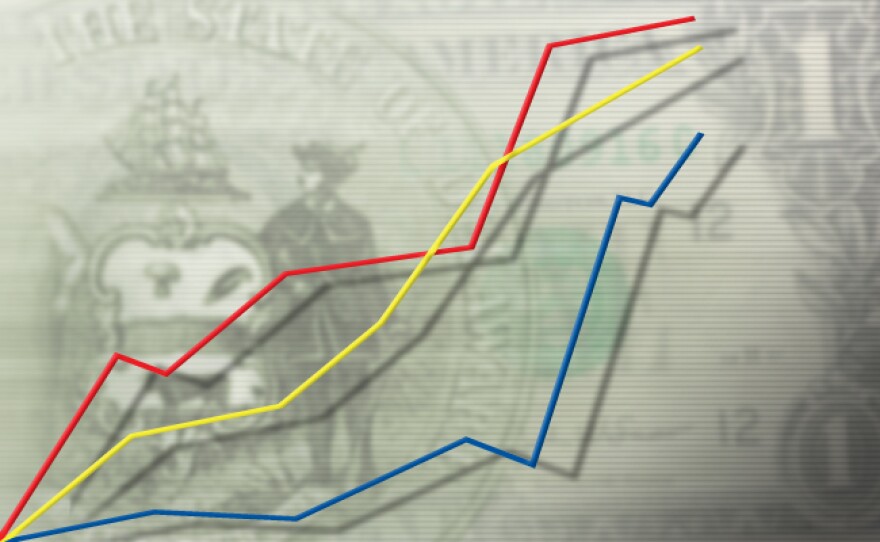In an effort to boost stagnating revenues, some state lawmakers are trying to add new taxes for high-income earners in Delaware.
The new legislation being shopped around for support by Rep. John Kowalko (D-Newark South) would add two new brackets to Delaware’s personal income tax structure.
Right now, the highest tax bracket is for those earning $60,000 or more at 6.6 percent. These new proposals would add new steps at $125,000 and $250,000.
State budget officials and legislators alike have groaned for more than a year at the grim revenue forecasts outlining poor growth.
Based on cuts made by the Joint Finance Committee last month, the group is still short $64.7 million compared to Gov. Jack Markell’s (D) proposed budget.
“We don’t have any funding for schools. We don’t have any funding for anything,” Kowalko said.
The two plans being circulated for co-sponsorship differ.
The first would simply add the new brackets with higher rates. Someone earning between $125,000 and $250,000 would pay 7.05 percent.
Anyone earning a quarter of a million dollars a year or more would be taxed at 7.8 percent.
Office of Management and Budget officials project that would generate $26.5 million in fiscal year 2016 and $70.9 million for fiscal year 2017.
A second option is more complicated.
Those two new brackets for wealthier Delawareans would still be in place and brackets across the spectrum would see a small 0.05 percent cut.
That will be balanced, Kowalko says, by phasing out the amount of federal itemized deductions one can apply to their state personal income tax return.
It would generate more money than the first option, netting $35.8 million in fiscal year 2016 and $123.1 million in fiscal year 2017 despite the across-the-board cut.
Estimates from Kowalko show someone filing alone earning $250,000 would pay an extra $625 a year under either plan.
Single filers making $500,000 would owe $2,500 more annually.
“It’s a nonstarter for us,” says Senate Minority Whip Greg Lavelle (R-Sharpley).
Democrats lost their supermajority in the Senate last year and would need to woo one GOP lawmaker to pass any tax increase.
Lavelle and other Republicans have called any effort to raise new revenue – including a nearly $24 million DMV fee hike bill pushed through by House Democrats last month – as “premature”.
Kowalko and others, like Sen. Harris McDowell (D-Wilmington North), have floated this idea for months, with the GOP instead calling for a detailed review of how the state spends its money.
“The practice of this building is that we’ll spend everything that comes in the door whether we need to or not,” said Lavelle, also noting that lawmakers should wait for the release of the final state revenue forecast Monday afternoon before committing to a tax increase.
Two bills establishing a spending review task force have been gagged in committee, with Democrats holding majorities in both chambers.
They argue that the Joint Finance Committee already analyzes spending while crafting the operating budget each year.
Markell issued an executive order in January for a group to look at Delaware’s revenue sources.
That group issued a report last month, emphasizing which sources should be prioritized because of their stability and those the state should wean themselves off of due to their volatility.
One point mentioned in that report was reducing the amount of federal deductions that can be applied, as detailed in the bill.
Reps. Helene Keeley (D-Wilmington South), Sean Lynn (D-Dover) and Sen. Karen Peterson (D-Stanton) are the other initial sponsors for the bills, which are expected to be filed early next week.
The final state revenue forecast will be released Monday afternoon.
“We have to finally do something to even up the revenue needs to meet the services we provide,” Kowalko said.




